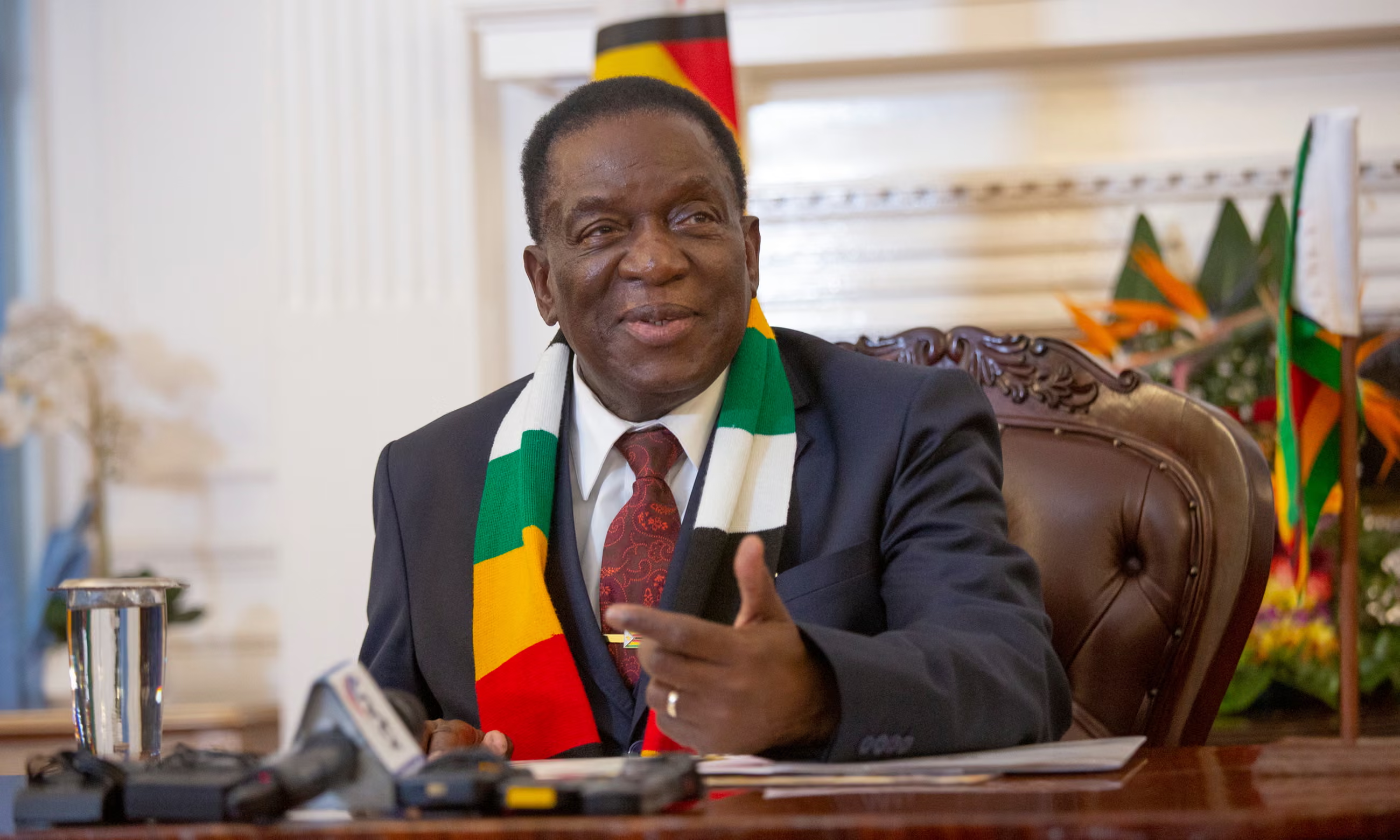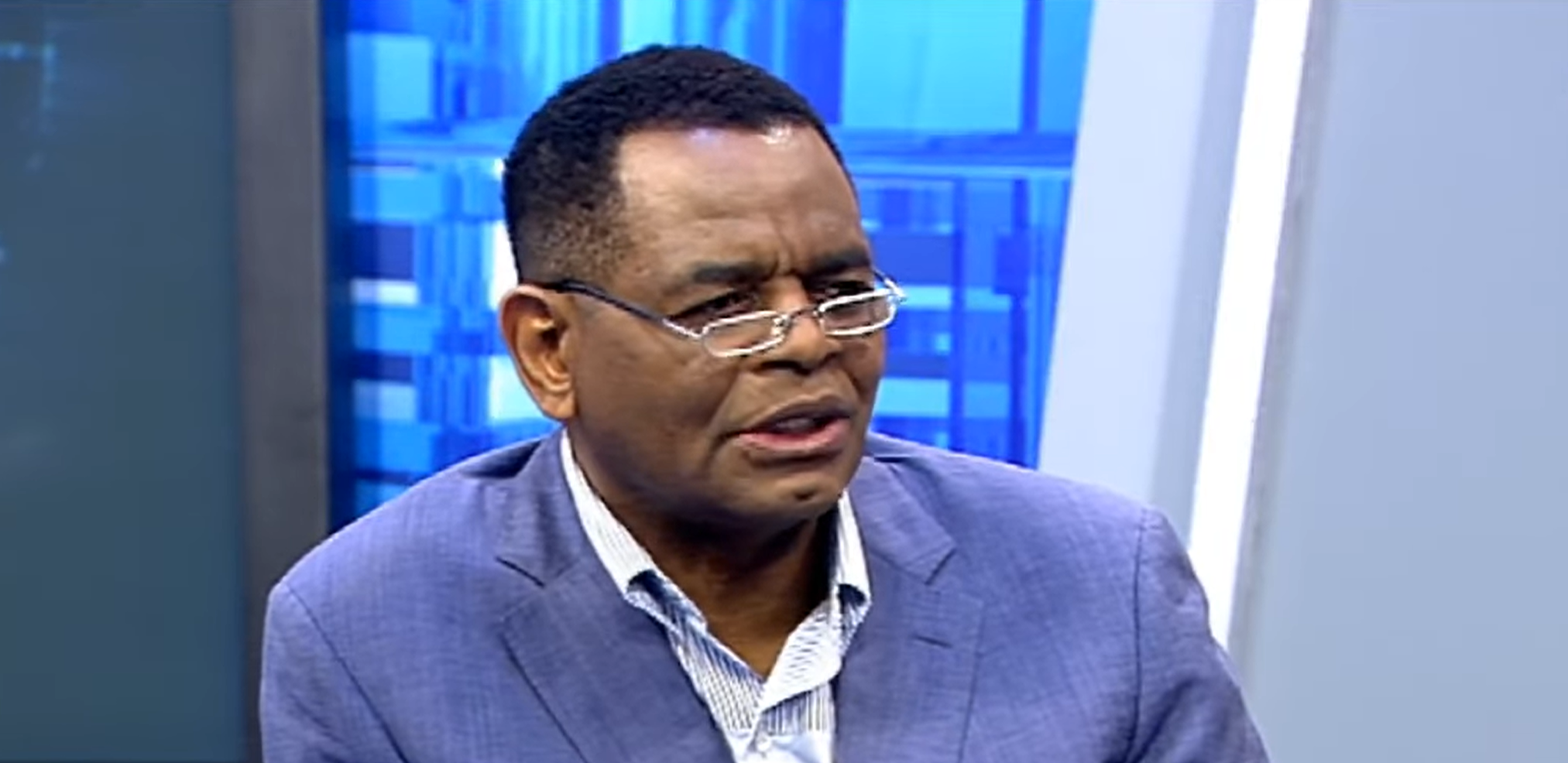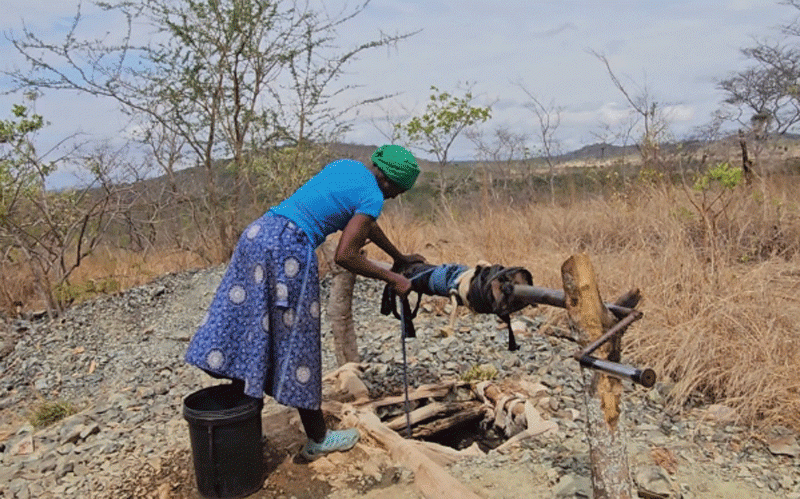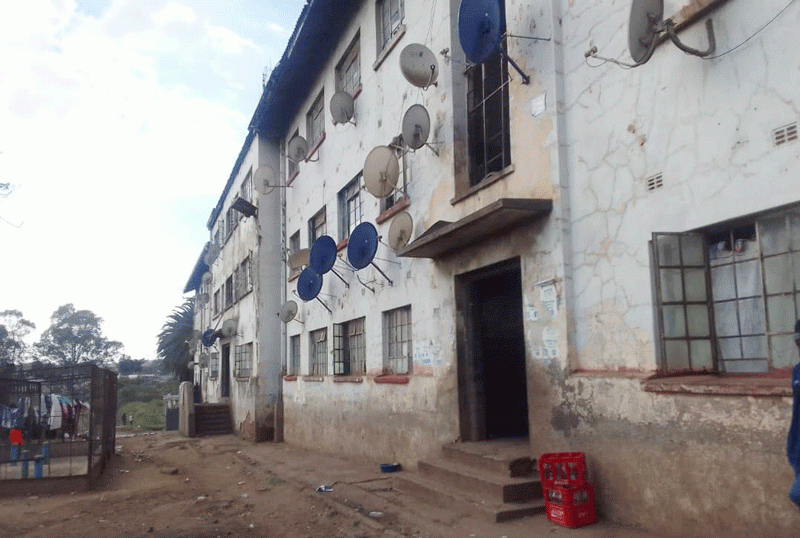
After a day’s boozing on what seemingly was “classy whiskey” Isaac Banda was admitted at Sally Mugabe Central Hospital.
He was confined to the medical institution for two months, including 10 days in the intensive care unit.
The adage: “If it is too ‘cheap’ to be true, it probably is”, is applicable to Banda’s situation, who is among a myriad of Harare imbibers falling prey to scammers that are refilling luxury whiskey bottles with cheap alcohol or illicit substances, popularly known as “tumbwa”.
The illicit alcohol is sold for a song from outside bottle stores, street corners and open-air joints across Harare.
“I bought a bottle of ‘Jameson Irish Whiskey’ from liquor vendors at a shopping centre in Highfield,” said Banda.
“I drank the whiskey after diluting it with ice and soda water, but as I drank I felt something was amiss, especially the smell and the taste.
“I continued drinking, but the next thing was that I found myself in a hospital bed.
“I am told I threw up blood and developed seizures before my family called for an ambulance.”
- Harare’s drug lords ruling over ghettos
- National Drug Master Plan: Walking the Talk
- Don’t criminalise drug users
- Overcrowding crisis hits Ingutsheni Hospital
Keep Reading
Banda was admitted to theintensive care unit after his condition worsened.
“The doctor said the alcohol took a toll on my liver and asked what type of alcohol I had taken,” he said.
“The leftover ‘whiskey’ was taken for tests where it was discovered to be fake.
“To the casual eye, there was nothing amiss about the bottle of whiskey, but the price though was something else.”
He said he bought the 750ml bottle of “Jameson Irish Whisky” for US$15 when actually the whiskey is sold for between US$20 and US$25 on the formal market.
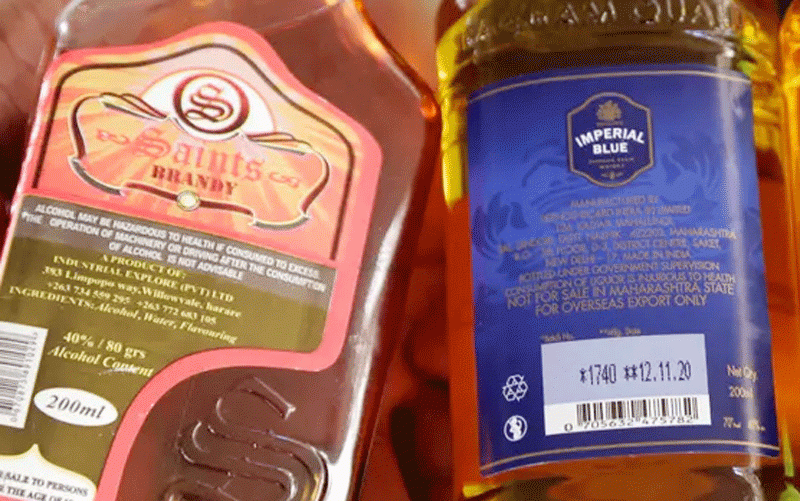
According to the World Drug Report 2023 launched by the UN Office on Drugs and Crime in June, the number of people who suffer from drug use disorders has skyrocketed to 39,5 million, a 45% increase over 10 years.
A recent survey done by the Health Professionals Trust Zimbabwe revealed that 80% of inmates in mental health institutions have drug and substance abuse-induced psychosis.
Although there is no official data on drug or substance use because a population-size estimate has never been done, anecdotal evidence points to a lot of illicit drug use worth millions of dollars in the country, experts say.
Over the past few years counterfeiting has become widespread in the country’s liquor industry amid the proliferation of “backyard distillers” in low-income suburbs that are refilling luxury whiskey bottles with cheap alcohol or illicit substances.
The distilleries, which are housed mostly in Mbare, are making fake whiskey, brandy, vodka and other counterfeit alcoholic concoctions.
Despite police claiming to make raids, the business is booming, according to a month-long investigation carried out by The Standard.
Matapi Flats and Matererini Flats as well as areas around Mukuvisi River have been turned into distillers while secluded corners in the same suburb are being used for packaging.
Fake alcohol is being produced from a mixture of water and ethanol on an industrial scale before containers are moved underground where the colourless substance is tinted and flavoured.
It is then filled in used branded bottles, mainly of popular brands such as Jameson, Two Keys, Best and Viceroy.
This publication established that the open area around OK Supermarket in Mbare was the epicentre of the fake whiskey trade.
“Here (Matererini Flats) they produce musombodhiya or gwibidi [a blend of water and AN fertiliser] as well as some stuff that is made out of ethanol and water,” said a 29-year-old man who preferred to be called Irvine, a resident at Materereni Flats.
“Some of the substance is produced along [Mukuvisi] River, but as for the whiskey, no one does that here at the flats.
“You can go and check in Jo’burg Lines where some of the stuff is taken too.”
Irvine, a vendor who does his business a stone’s throw away from the flats, confirmed that the illicit brew is being refilled in branded whiskey and brand bottles.
“Selling gwibidi is no longer lucrative and these enterprising guys have come up with innovative means to profiteer,” he said.
“It’s a cartel and these people are not arrested.”
Used whiskey and brand bottles are cleaned up in the contaminated waters of Mukuvisi River.
This reporter had an encounter with two men cleaning the bottles.
“We want to sell these bottles for reuse to companies that purportedly manufacture alcohol,” said one of the men.
“There are ‘middle men’ from here in Mbare to whom we sell these empty bottles.”
However, this publication found out that these empty bottles were being bought from empty bottle vendors who mostly ply their trade outside beer outlets across town.
“A truck usually comes here once a month to buy these empty bottles,” said a vendor at Zengeza 2 shopping centre in Chitungwiza, half an hour’s drive from the capital.
“They buy these empty bottles for 20 cents each, but they want us to pack them in sacks.
“We are not sure where they take them to, but they buy any empty bottle regardless of its brand.”
Police spokesperson assistant commissioner Paul Nyathi could not be reached for comment, but an officer in the CID Drugs and Narcotics department confirmed the rampant manufacture of illicit alcohol, including the production of fake whiskeys in Harare.
He said during a raid in Mbare police discovered bottles with labels of different commercial alcoholic spirit brands (whiskey, brandy, vodka and gin) as well as unused caps and glue for sealing.
“At times they buy ‘tumbwa’ and refill luxury bottles to sale on the market,” said the police officer on condition of anonymity.
“They connive with people who work at alcohol manufacturing companies, who supply caps and sometimes labels.
“This is a multi-million business that is being done across the country, especially in major cities where raw materials are easily accessible.”
This publication established that some scammers access cheap alcohol from spirit distillers or nearly pure alcohol that is around 96% alc/vol, which they neutralise and use to fill up used bottles of branded products before selling them as authentic products.
Zimbabwe has of late seen an increase in the number of spirit distillers, many of whom are unlicensed.
In May, one Robert Nyemudzo, a disqualified Zanu-PF candidate for Chipinge South, was sentenced to 18 months imprisonment for contravening the Harmful Liquids Act.
Nyemudzo was brewing illicit spirits, mixing ethanol with water at his home at Checheche growth point in Chipinge.
As part of investigations, this publication also ascertained that there were hordes of illegal distillers in Harare feeding whiskey scammers.
Some of the “whiskey” brands on the market include Black Panther, which is produced at a location in Ardbennie and Locardia, produced in Ruwa, both in Harare.
A popular “brand” called Vox is manufactured in Chitungwiza.
“Most of these people producing phony whiskeys are operating backyard distillers and are not even registered or licensed at all,” said Nyaradzo Manonge, a board member at the Liquor Traders' Association of Zimbabwe.
“While this is not affecting us much as traders, the propagation of fake whiskey producers is affecting consumers the most.”
She said most members of their association were reputable wholesalers who do not trade in fake whiskeys.
A blend master with a local brand manufacturing company said fake alcohol was not safe.
“This alcohol is intense with no monitoring which makes it toxic,” he said.
“One pointer of fake whiskey or brand is the smell and the different levels of the bottled substance because it is done by hand unlike in a manufacturing plant.”
He said it was not safe for someone to drink a bottle-and-a-half of whiskey in 24 hours as this could cause immediate damage to the liver that could be lethal.
However, according to the World Health Organisation, in a recent statement published in The Lancet Public Health, when it comes to alcohol consumption, there is no safe amount that does not affect health.
Health expert and medical doctor Johannes Marisa said most illicit substances, especially fake alcohol contain harmful and toxic ingredients.
“Some ingredients like methanol can lead to blindness and cause health problems, and is often lethal,” Marisa said.
He said ammonium nitrate when swallowed in high concentration may cause a lot of health repercussions including headache, dizziness, abdominal pain, vomiting, bloody diarrhoea and weakness, among others.
Zimbabwe Civil Liberties and Drug Network programmes manager Knowledge Mupembe acknowledged the production and consumption of illicit substances disguised as genuine whiskey.
“Zimbabwe doesn’t have a size estimate of illicit drug and substance use, so writers, analysts and programmers only rely on the anecdotal evidence from small articles in the media and perhaps from police updates when they make arrests and raids,” Mupembe said.
“As such, the prevalence of illicit brews in Zimbabwe, particularly Harare, is very high as seen in their affordability.
“It is reported that they are very cheap as compared to other drugs or genuine alcohol and therefore for this reason, their sale or consumption is very high.”
However, Mupembe said there was need to conduct research to inform on the production and consumption of illicit brew in the country.
He said there was a need to urgently implement and fund the Zimbabwe National Drug Master Plan (ZNDMP) together with the Treatment and Rehabilitation Guidance for Alcohol and Substance Use Disorders.
The ZNDMP was adopted by government in 2022 to focus on reducing the supply and demand of drugs and for harm reduction interventions.


